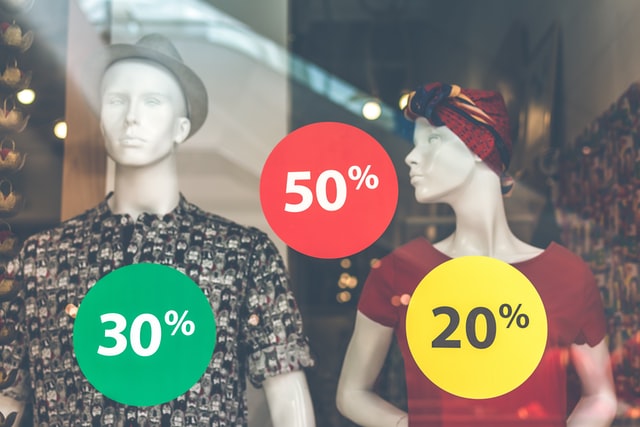Pirkėjams pradėjus suvokti mados verslo poveikį aplinkai, tvarus džinsinis audinys tampa labai paklausus. Nors įprastinė džinsų gamyba gerai žinoma dėl didelio vandens suvartojimo, toksiškų dažiklių ir anglies dioksido išmetimo, dėl naujausių pasiekimų įmonės dabar gali siūlyti individualizuotus džinsinius švarkus, kurie yra ir madingi, ir ekologiški. Šiame vadovėlyje apžvelgsime, kaip kurti tvarius individualius džinsinius švarkus - nuo tinkamų medžiagų pasirinkimo iki etiškos gamybos ir sėkmingų prekės ženklo kūrimo būdų taikymo.

Tvari mada yra MODENLY verslo kryptis, o ne tik mados klyksmas. Mūsų kompetencijos sritis - etiški gamybos būdai ir ekologiškų medžiagų gamyba. Investicijos į aplinkai draugiškus užsakomuosius džinsus padės jums išsiskirti, nesvarbu, ar jūsų įmonė yra mados prekės ženklas, mažmenininkas, ar verslo korporacija, norinti įdiegti tvarius drabužius ir sumažinti poveikį aplinkai.
1. Kodėl tvarumas svarbus užsakomųjų džinsinių švarkų srityje?
Tradicinio džinsinio audinio poveikis aplinkai
Džinsų gamyba jau seniai susijusi su didelis vandens suvartojimas, cheminė tarša ir per didelis energijos suvartojimas.. Vienai džinsų porai pagaminti reikia 1 800 galonų vandens vidutiniškai, o įprastiniai dažymo būdai į upes išmeta kenksmingas chemines medžiagas.. Be to, pridėjus dirvožemio degradacija ir užterštumas mikroplastikais yra sintetinės spalvos ir audinių apdorojimo priemonės.
Perėjimas prie tvaraus džinsinio audinio
Didėjant ekologiškai sąmoningų vartotojų skaičiui ir įstatymams darant spaudimą, gamintojai naudoja tvarūs džinsinio audinio pakaitalai vis daugiau ir daugiau. Šiandienos klientai nori įmonių atvirumas apie jų aplinkosaugos įsipareigojimus, gamybos praktiką ir tiekimo politiką.
Teikti tvarūs džinsiniai švarkai pagal užsakymą tenkina vartotojų poreikius ir skatina ilgalaikis lojalumas prekės ženklui o ne tik atsakomybę už aplinką.
Konkurencinis pranašumas: kodėl prekių ženklai investuoja į tvarias džinsines striukes
Įmonės, kurios suteikia tvarumo prioritetas paprastai pranoksta konkurentus, nes atsidavusių vartotojų bazė. Ekologiškų džinsinių gaminių projektai, kuriuos įgyvendina gerai žinomos įmonės, pvz. "Levi's", "Patagonia" ir "Everlane parodyti, kad tvarumas ne tik įmanomas, bet ir pelningas..
Nesvarbu, ar esate naujas mados prekės ženklas arba patyręs prekybininkas, įskaitant pagal užsakymą pagamintos ekologiškos džinsinės striukės į jūsų verslo sritį padės išskirti savo prekės ženklą prisotintoje rinkoje..
Tvarumas dabar yra konkurencinis pranašumas, kuriuo į ateitį žvelgiančios įmonės naudojasi, kad pritrauktų ir išlaikytų aplinkosauga besirūpinančius vartotojus.
2. Tinkamų tvarių medžiagų pasirinkimas individualioms džinsinėms striukėms
Ekologiška medvilnė: Vandens taupymo alternatyva
Ekologiška medvilnė auginama naudojant natūralias trąšas ir žymiai mažiau vandens nei įprastinė medvilnė, kuri priklauso nuo pesticidų ir per didelio vandens kiekio. Įmonės, kurios pereina prie GOTS sertifikuotos ekologiškos medvilnės, ne tik sumažina poveikį aplinkai, bet ir pagerina audinių pralaidumą orui ir patvarumą.
Perdirbtas džinsinis audinys: Uždaroma kilpa
Perdirbtas džinsinis audinys, kuriam gaminti naudojamos vartotojų ir pramoninės tekstilės atliekos, sumažina pirminės medvilnės gamybos poreikį. Kai kurie gamintojai sukuria tvirtą, bet tvarią tekstilę, maišydami perdirbtą džinsą su organiniu arba "Tencel" pluoštu. Šis uždaro ciklo metodas padeda įmonėms įgyvendinti atliekų mažinimo tikslus, kartu išsaugant audinio vientisumą.
kanapės & Tencel: Ekologiškų audinių ateitis
Auginant be pesticidų ir reikia 50% mažiau vandens nei medvilnei, kanapių džinsinis audinys yra naujas tvaraus dizaino favoritas. Taip pat iš medienos celiuliozės pluošto gaminamas "Tencel" - lengvas, švelnus pakaitalas, pasižymintis ekologiškomis, biologiškai skaidžiomis savybėmis. Šiais gaminiais remiamos aplinkosaugos kampanijos ir įmonėms suteikiamas išskirtinis pardavimo pranašumas.
Natūralūs dažikliai ir apdorojimas be cheminių medžiagų
Mažą poveikį darantys dažai, augalinis indigas ir vandenį taupantys dažymo būdai padeda gerokai sumažinti cheminę taršą, susidarančią gaminant įprastą džinsą. Be to, tokie pasiekimai kaip lazerinė apdaila ir skalbimas ozonu pakeičia būtinybę naudoti per stiprų vandenį ir chemines priemones, kai džinsas yra deformuojamas.
Susiduriate su didelėmis gamybos sąnaudomis? Siūlome konkurencingas kainas, nesumažinant kokybės!
3. Etiška gamyba: Kaip užtikrinti atsakingą tiekimo grandinę?
Etiškos tiekimo grandinės palaikymas yra gyvybiškai svarbus įmonėms, kurios šiuolaikiniame pasauliniame mados versle tvarumui, sąžiningai darbo praktikai ir aplinkosauginei atsakomybei teikia pirmenybę. Klientai vis dažniau reikalauja atvirumo, todėl įmonės, kurios nepaiso etiškos gamybos standartų, rizikuoja prarasti klientų pasitikėjimą. MODENLY siekiame bendradarbiauti su gamintojais, kurie laikosi geriausių etikos standartų, kad mūsų užsakomieji drabužiai būtų ne tik puikūs, bet ir sukurti atsakingai.
Darbas su sąžiningos prekybos sertifikuotais gamintojais yra esminė etiškos gamybos dalis, nes taip užtikrinama, kad darbuotojams būtų teisingai atlyginama, jie dirbtų saugiomis darbo sąlygomis ir gautų būtiną gerovę užtikrinančias išmokas. Šios gairės garantuoja, kad džinsų darbininkams bus užtikrinta pagarba ir orumas, todėl padeda panaikinti išnaudojimo darbo praktiką. Etiniai gamintojai ne tik moka už darbą, bet ir užtikrina priimtinas darbo valandas, gerą ventiliaciją ir darbo vietos saugos priemones, kurios yra svarbiausias prioritetas siekiant apsaugoti darbuotojus nuo pavojingų sąlygų.
Gamybos tvarumas apima ir mažai atliekų naudojančius gamybos metodus. Pirmaujantys džinsinio audinio gamintojai šiandien daugiausia dėmesio skiria sąvartynų atliekų mažinimui, pakartotiniam likučių panaudojimui ir audinių atraižų perdirbimui. Kad dar labiau sumažintų anglies dioksido pėdsaką, kelios gamyklos naudoja atsinaujinančius energijos šaltinius, įskaitant saulės ir vėjo energiją. Investicijos į vandens filtravimo sistemas padėtų prekių ženklams smarkiai sumažinti vandens švaistymą ir taršą, taip užtikrinant, kad gaminant nebūtų pakenkta netoliese esančioms ekosistemoms. Bendradarbiaudami su partneriais, kurie naudoja biologiškai skaidžias pakuotes, energiją taupančias technologijas ir atsakingas nuotekų valymo sistemas, MODENLY padedame mažinti drabužių gamybos poveikį aplinkai.
Etiškos tiekimo grandinės taip pat apima ne tik gamybą. Daugelis tvarių įmonių, naudojančių anglies dvideginio kompensavimo programas, kompostuojamas siuntimo medžiagas ir biologiškai skaidžius drabužių maišelius, daug dėmesio skiria ekologiškiems siuntimo metodams. Tokios bendrovės kaip "Reformation" ir "Everlane" veiksmingai taiko mažo poveikio platinimo metodus, kurie rodo, kad tvarumas turi būti įtrauktas į kiekvieną tiekimo grandinės etapą, o ne baigtis gamyba.
4. Prekės ženklo kūrimas ir pritaikymas: Kaip padaryti, kad jūsų tvarios džinsinės striukės išsiskirtų iš kitų
Ekologiška spauda ir siuvinėjimas
Tradiciškai įprastiniams šilkografijos metodams buvo naudojami plastizolio pagrindu pagaminti dažai, į kurių sudėtį įeina pavojingos cheminės medžiagos ir biologiškai nesuyrantis plastikas, todėl jie daro didelę žalą aplinkai. Dėl šių dažų kyla sunkumų šalinant atliekas, be to, gamybos darbuotojams kyla pavojus dėl nuodingų garų. Tvaraus džinso gamintojai į tai reaguoja taikydami mažo poveikio spaudos ir siuvinėjimo būdus, kurie leidžia išsaugoti puikų pritaikymą ir kartu gerokai sumažinti poveikį aplinkai.
Populiarus ekologiškas pakaitalas - šilkografija vandens pagrindu - užtikrina švelnesnį spausdinimo pojūtį, nes nereikia naftos pagrindu pagamintų dažų, todėl mažėja cheminių medžiagų atliekų. Be to, sublimacinė spauda - technika, kai dažai tiesiogiai įterpiami į audinį - leidžia naudoti sodrias, ilgai išliekančias spalvas nenaudojant bereikalingo vandens ar pavojingų cheminių medžiagų. Siuvinėjant vietoj sintetinių poliesterio siūlų naudojami augalinės kilmės organinės medvilnės siūlai, todėl pagerėja firminių džinsinių švarkų poveikis aplinkai.
Minimalistinis prekės ženklas ir drąsios tvarios žinutės
Įmonės skirtingai elgiasi su tvariu prekės ženklo kūrimu, derindamos dizainą su savo atsidavimu aplinkai atsakingiems metodams. Kai kurios renkasi santūrų, minimalistinį stilių su toninėmis siūlėmis, odos lopais, pagamintais iš augalinių pakaitalų, tokių kaip obuolių ar grybų oda, arba mažais siuvinėtais logotipais. Šiais subtiliais elementais palaikomi ekologiškai sąmoningi įsitikinimai ir kartu pritaikomi aukštos klasės, paprastos mados rinkose.
Kiti užima drąsesnę, labiau teigiamą poziciją ir naudoja austas etiketes, kuriose pabrėžiama ekologiško audinio sudėtis, etiški gamybos būdai ir anglies dioksido neutralizavimas. Šios įmonės pritraukia etiškai motyvuotus vartotojus, kurie aktyviai medžioja jų idealus atitinkančius gaminius, aiškiai pabrėždami savo aplinkosaugos iniciatyvas. Džinso pramonėje, kurioje vyrauja griežta konkurencija, aplinkosauginis ženklinimas didina prekės ženklo atpažįstamumą ir vartotojų lojalumą, nesvarbu, ar tai būtų santūrios detalės, ar ryški ekologinio sąmoningumo žinutė.
5. Tvarių džinsinių švarkų verslo argumentai: Išlaidos ir pelningumas.
Vienas iš pagrindinių nesusipratimų, susijusių su tvaria mada, yra tas, kad ji negali būti pelninga, nes kainuoja brangiai. Nors etiški gamybos metodai ir aplinkai nekenksmingos medžiagos gali būti susiję su didesnėmis pradinėmis išlaidomis, jie taip pat didina suvokiamą vertę ir leidžia bendrovėms nustatyti aukštesnę kainą.
Standartinio didmeninės prekybos džinsinio švarkelio iš tradicinio džinso gamybos kaina yra maždaug $10-$15 už vienetą; tvariai pagamintos alternatyvos kaina gali svyruoti nuo $18 iki $25 už vienetą, priklausomai nuo ekologiškos medvilnės, perdirbtų medžiagų ir vandens taupymo metodų naudojimo. Vis dėlto tvarios įmonės gali palaikyti didesnes mažmenines kainas, priklausomai nuo klientų pasirengimo mokėti už atsakingai pagamintas prekes.
"Patagonia" ekologiško džinsinio audinio prekės ženklas yra viena geriausių faktinių tvaraus džinsinio audinio sėkmės iliustracijų. Garsėjanti ekologiškais metodais, "Patagonia" pristatė "Fair Trade CertifiedTM" sertifikuotą džinsų liniją, sukurtą iš mažo poveikio dažų, gautų iš 100% organinės medvilnės, ir mažai naudojanti vandens.
Pagrindinės išvados:
- "Patagonia" gamybos procese sunaudojo 69% mažiau vandens ir 84% mažiau cheminių medžiagų;
- Tvaraus džinsinio audinio linijos pardavimų konversijos rodiklis buvo 25% didesnis nei tradicinių džinsinio audinio linijų.
- "Patagonia" įrodė, kad tvarumas parduodamas, pateisindama didesnę mažmeninę kainą ($149-$179 už drabužį), palyginti su įprastomis džinsinėmis striukėmis.
Įmonės, kurios tvarumui teikia pirmenybę savo pagal užsakymą gaminamoms džinsinėms striukėms, gali veiksmingai padidinti pardavimus, išsiskirti iš konkurentų ir skatinti lojalumą prekės ženklui visą gyvenimą.
Išvados: Tvaraus džinsinio audinio ateitis
Individualūs džinsiniai paltai suteikia įmonėms ypatingą galimybę išsiskirti labai konkurencingoje pramonės šakoje ir kartu daro gerą etinį ir aplinkosauginį poveikį. Prekės ženklai, investuojantys į ekologiškas medžiagas, etišką gamybą ir atsakingą prekės ženklo kūrimą, pritrauks etiškus vartotojus, kurie tvarumui teikia pirmenybę, nes vartotojų paklausa tvariai madai auga.
Naudodamos mažo poveikio spalvas, perdirbtą džinsinį audinį ir ekologišką medvilnę, įmonės gali gerokai sumažinti poveikį aplinkai, neprarasdamos kokybės. Sąžiningas darbo užmokestis, saugios darbo sąlygos ir tvari pakuotė - tai vieni iš etiškų gamybos metodų, kurie dar labiau pabrėžia įmonės atsidavimą atsakingai madai. Investicijos į tvarumą ne tik atitinka dabartines pramonės tendencijas, bet ir padeda išsaugoti išskirtinį meistriškumą ir ilgalaikę prekės ženklo reputaciją.
Naudodami ekologišką medvilnę, perdirbtas medžiagas ir etišką gamybą, MODENLY padedame prekių ženklams įgyvendinti jų pačių tvaraus džinsinio audinio idėjas. Nesvarbu, ar keičiate esamos džinsų linijos prekės ženklą, ar pradedate kurti naują kolekciją, galime padėti sukurti galingus, madingus ir ekologiškus drabužius. Cometa Visi pasiruošę pradėti savo tvarių džinsinių švarkų pagal užsakymą liniją? Skambinkite MODENLY ir pradėkite dirbti jau šiandien!

